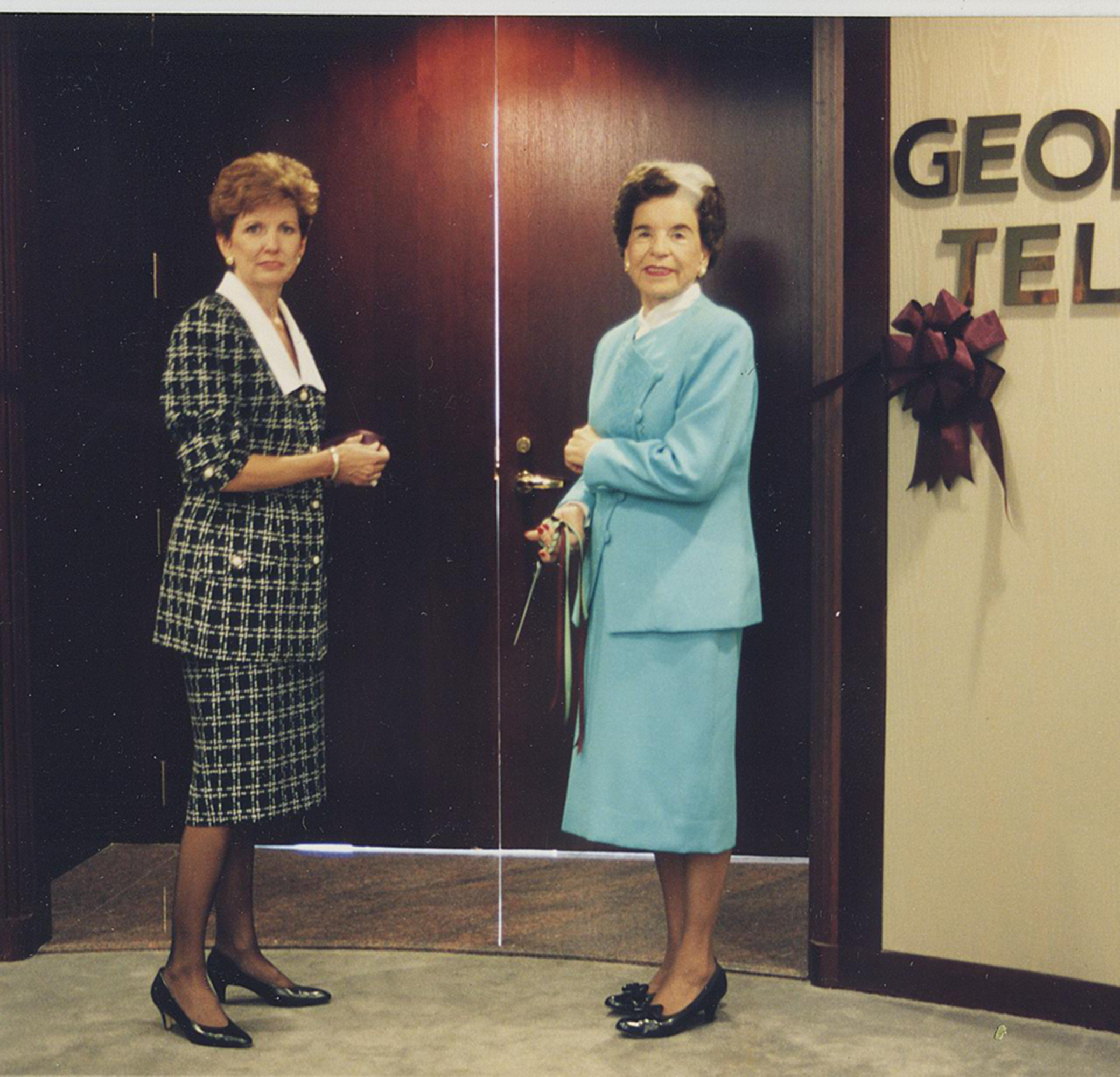All March long, we celebrate Women’s History Month, which highlights the contributions made by women in American history. While finance is often considered a male-dominated industry, women have been managing their own finances and starting businesses for well over a century.
Below, we’ve put together a list of some of the most important women in financial history, including the history of Georgia’s Own. Check out these six financial trailblazers:
Eloise Woods, former president and CEO of Georgia’s Own (formerly Georgia Telco)
As we celebrate our 90th Anniversary, we’d be remiss not to highlight Eloise Woods, our former president and CEO. In 1960, Woods was the first woman named CEO of a Georgia credit union, inspiring women and helping to clear a path for future generations. In 1977, Woods achieved one of her greatest accomplishments, when she was appointed by President Carter as Chairperson of the National Credit Union Administration (NCUA) Advisory Board, the independent federal agency that regulates federal credit unions. Under her leadership, our asset size grew to $700 million, making Georgia Telco the third largest credit union in the state when Eloise retired in 1999. Remembered as a trailblazer in both the financial industry and the history of Georgia’s Own, she was known for her forward-thinking vision, her support and mentorship of women in business, and her signature hairstyle. When she retired from Georgia’s Own after 52 years of service, the next woman on our list was named as her successor.
Charlotte Ayers, former president and CEO of Georgia’s Own
After taking on the role of president and CEO from Woods, one might think the shoes were impossibly big to fill. But Ayers took the Credit Union to new heights during her tenure, including overseeing a major rebrand from Georgia Telco to Georgia’s Own. Moreover, the Credit Union reached $1.5 billion in assets and doubled membership before her retirement after 41 years of service—11 of which she served as president. Charlotte was a trailblazer in the financial service industry during her administration and her legacy remains an integral part of our history.
Maggie Lena Walker, first woman bank president
In 1903, Maggie Lena Walker became the first African American woman to charter a bank when she chartered the St. Luke’s Penny Savings Bank, aimed at promoting savings and homeownership, specifically among women and racial minorities. She later became the first African American woman to serve as bank president after the bank acquired two other institutions. As a leader, Walker made great strides towards her vision to make real-life improvements in lives of other African Americans, and in particular focused on homeownership—by 1920, more than 600 people were able to buy homes thanks to St. Luke’s.
Janet Yellen, former treasury secretary of the United States
In 2021, Janet Yellen made history as the 78th treasury secretary of the United States, but the first woman to ever hold the position. Before that, she served as the chair of the Federal Reserve, the chair of the White House Council of Economic Advisers (CEA), and is the first person—man or woman—to have led all three institutions. Formally trained as an economist, she took office after close to 50 years in academia and public service, focused primarily on the analysis of the mechanisms of unemployment and labor markets, monetary and fiscal policies, and international trade. As CEA Chair, she oversaw research on the gender pay divide and reasons why women earned substantially less than men. At the Federal Reserve, her academic insight was particularly influential in 1996, when they resisted pressure to raise interest rates as unemployment dropped based on academic research. Yellen is considered one of the most successful Federal Reserve chairs, and she finished her tenure there with the lowest final unemployment rate of any chair since William McChesney Martin in 1970.
Madam C. J. Walker, first Black woman millionaire in America
Born into poverty, Madam C.J. Walker used her skills to become one of the wealthiest African American women of her time. After moving to Denver, Walker launched her own line of hair products and straighteners for Black women, starting with an investment of one dollar. She grew that dollar, becoming known as the first Black woman millionaire, as well as an entrepreneur, philanthropist, and activist, using her position and wealth to advance equality and her community. Walker was a proponent of Black women’s economic independence and opened training programs for her national network of licensed sales agents. Through her business, Walker employed 40,000 Black women and men across the U.S., Central America, and the Caribbean.
Rosemary McFadden, first woman President of any stock or futures exchange
After beginning her career as a staff attorney, Rosemary McFadden quickly rose through the ranks and was elected President of New York Mercantile Exchange (NYMEX) in 1984, becoming the first woman president of any stock or futures exchange in the United States. Under her leadership, NYMEX became the world’s largest energy exchange, expanded its offices to Asia and Europe, and its crude oil contract set the standard for spot and futures trading.
—
While we celebrate Women’s History all month long, we also celebrate International Women’s Day each year on March 8th. This year’s theme is Inspire Inclusion—because when women are inspired to be included, a sense of belonging, relevance, and empowerment blossoms. We hope this article inspires you, and in particular, continues Eloise Wood’s goal to inspire women in business. Do you have a woman in business you admire? Share them in the comments below!


